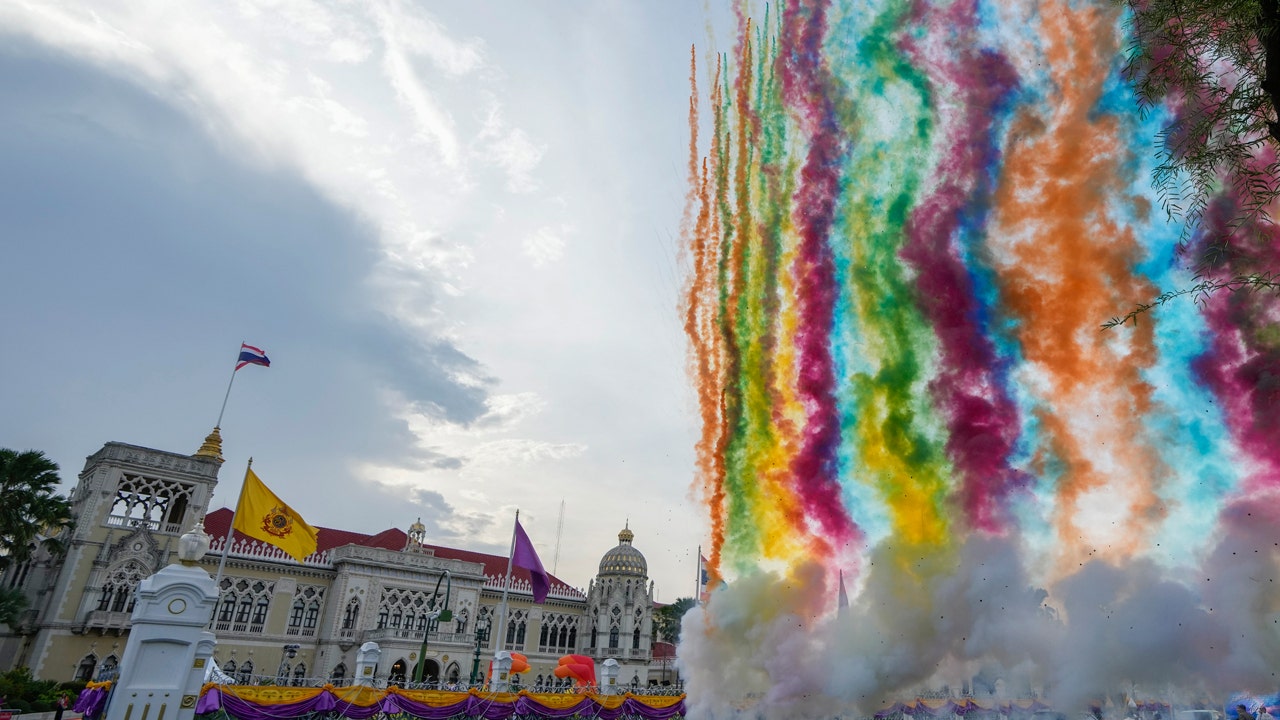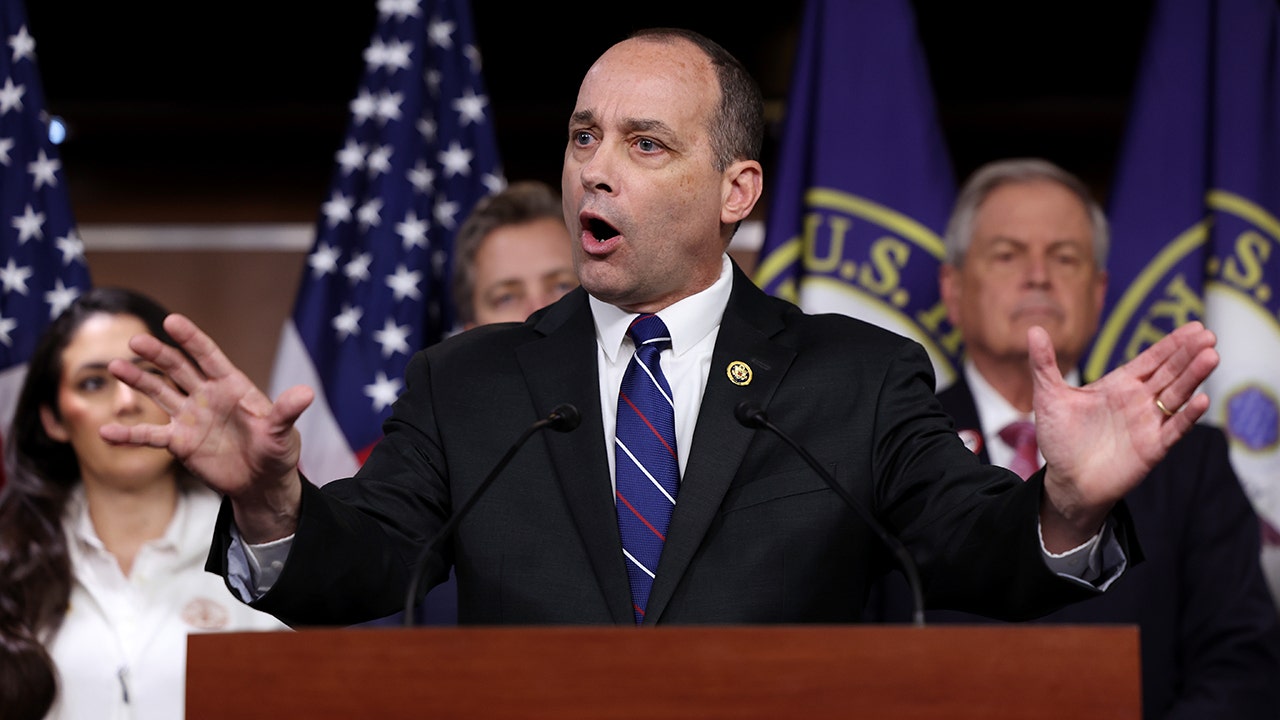South Dakota
Hundreds rally in South Dakota against eminent domain for carbon pipelines

PIERRE, South Dakota – About 250 people descended on the state Capitol on Thursday in South Dakota, demanding a prohibition against carbon capture pipeline companies gaining access to land against a landowner’s will.
Lawmakers, landowners and concerned citizens from across the political spectrum called on Republican Gov. Kristi Noem to call a special legislative session to address the issue. She did not attend the rally.
“Governor Noem, you say you stand with us,” said rally speaker Ed Fischbach, an Aberdeen-area farmer whose land is near a proposed pipeline route. “We need your actions to speak louder than your words.”
Protesters have descended upon the capitol in Pierre, demanding an end to carbon capture pipeline companies being able to use eminent domain law. The gathering of ~250 called on more lawmakers and Noem to declare a special legislative session to address the issue. pic.twitter.com/EYvlnihjIj
— Joshua Haiar (@JoshuaHaiar) July 6, 2023
The rally comes amid a heated public debate over the expansion of carbon capture pipeline infrastructure.
Two pipelines that would pass through eastern South Dakota and multiple other states are designed to transport captured carbon dioxide produced at ethanol plants to underground storage sites in North Dakota and Illinois. The aim is to combat climate change by removing carbon from the atmosphere, where it traps heat. The projects are eligible for billions of dollars in federal tax credits, and could allow ethanol producers to sell their products in places with restrictive emissions standards.
However, critics argue that the use of a court process called “eminent domain” – which one of the pipeline companies is already pursuing, to gain land access from dozens of unwilling landowners – is a violation of property rights.
“This is going to set precedents,” said Rep. Oren Lesmeister, D-Parade, in a speech to the crowd. “And if we don’t stop this now, what’s that going to mean for eminent domain for private gain in the future?”
Some attendees wore T-shirts that read “No eminent domain” and held signs asking “Gov. Noem, what if this was your land?” Some argued the use of eminent domain by carbon capture pipelines is improper, because carbon pipelines do not deliver a product for the public as some other eminent domain projects do, such as crude oil pipelines, water pipelines and electrical power lines.
Collin Duprel, who ran unsuccessfully as a Libertarian for Congress last year, told the crowd that lawmakers who failed to show up for the rally will have a tough time getting reelected.
“There’s a lot of people who are missing,” Duprel said. “They don’t deserve to be in office anymore. We’re drawing a line in the sand, today.”
Chair of the South Dakota Freedom Caucus, state Rep. Aaron Aylward, R-Harrisburg, said in a press release he is committed to fighting for legislative action.
“Governor Noem: Our land and property rights are under attack, and the time for action is now,” Aylward said. “By declaring a man-made emergency and convening a special legislative session, you can put an end to this assault on citizens’ rights.”
The governor can declare a special session, but so can two-thirds of the Legislature.
At the end of the rally, affected landowner Jared Bossly and state Rep. Karla Lems, R-Canton, delivered about 2,000 petition signatures calling for a special session to the governor’s office.
Noem has not addressed protesters’ calls for her to declare a special session but tweeted last week, “If the Legislature wants to call themselves into special session to change the law, I look forward to reviewing what they send to my desk.”
There was a bill to prohibit eminent domain for carbon pipelines during last winter’s legislative session. The bill passed the House but failed in a Senate committee.
House Majority Leader Will Mortenson, R-Pierre, did not attend the rally. He said in a statement that while he “led the charge for farmers and ranchers during this year’s session,” unless “we get agreement with the Senate on some proposals, we shouldn’t call a special session and neither should the governor. It would be a waste of taxpayer dollars and legislator time.”
“For my part, I’ll be spending the next couple months working with senators to gather consensus on protecting landowners. I hope we get the job done,” Mortenson said.
The carbon capture pipeline company using eminent domain, Summit Carbon Solutions, and its proponents have defended the process as a necessary step for ensuring the future of corn-based ethanol. They point out that the company has already negotiated easements with about 70% of impacted landowners in the state.
Summit Carbon Solutions did not reply to a request for comment on the calls for a special session. Both Summit and Navigator CO2 Ventures, the other company proposing a carbon pipeline through South Dakota, have permit hearings scheduled later this summer with the South Dakota Public Utilities Commission.

South Dakota
Here's What I Know: The return of real polling in South Dakota

The polls are back.
It’s a byproduct of our short attention span, or a fascination with sports metaphors, but every election cycle we get drenched in polling.
This dude versus that dude. Up, down, sideways, trends, subsets, gender, race, age, etc.
Everything you’d want to know on this issue or that.
It’s all quite fascinating.
And potentially dangerous.
I got my first insight into polling many years ago while working in Des Moines.
The late and legendary Tom Fogarty was a reporter for the Des Moines Register who worked on one of the most influential political polls in the country. The Iowa Poll covered more than politics, however, and had for decades by that point.
I was lucky enough to spend some quality time with Tom during the quiet moments in the Iowa Senate, where we both worked as reporters. I was young and learned a lot just watching him and reading his stories.
He was smart, funny, a great writer and unimpressed with people in power. It was like getting a master’s degree in how to be a real reporter.
(He also pulled a masterful prank on me, related to the visit of then President Bill Clinton, a story that is retold in some circles to this day. But sadly, not here.)
What I learned from Tom about polling was the importance of the questions, how they are constructed, how the words you use matter.
I took that background into later jobs where I wrote about polls and then supervised them, working directly with professional pollsters to get the most-accurate results possible.
The world has changed immeasurably since those early days.
There are myriad ways in which groups or politicians gauge sentiment. They use this information to guide their actions and to influence the public.
Which means that accuracy and credibility are more important than ever.
So I’ve been pleased to see the polling conducted in recent months by South Dakota News Watch. News Watch is a nonprofit newsroom founded by a couple of my former bosses at the Argus Leader and staffed by some former colleagues.
Forum Communications, the parent company of Sioux Falls Live, is a supporter and we use News Watch content on our site and the Mitchell Republic.
One of the reasons I’m happy to see News Watch taking up the mission is because of who they choose to do business with, specifically Mason-Dixon Polling & Strategy.
That’s the same firm we used at the Argus Leader for many years, including through the highly contentious campaigns for U.S. Senate in the early 2000s.
They are thorough, professional and maintain incredibly high standards for independence.
It’s never an exact science, rather polling is just a snapshot of a moment in time. Many factors can and do influence the outcome.
The results have a margin of error, an important footnote when you’re examining the coverage of a poll. If there isn’t information on sample size, margin of error and methodology, don’t trust it.
Also, remember the further you dive into the numbers – the subgroups of geography, gender, age or race, etc. – the less accurate they become.
There’s a lot of bad information out there, including pollsters experimenting with various digital methods to extract information. We’ve seen time and again wild claims that end up falling flat on Election Day.
I can say without hesitation that Mason-Dixon was solid in service of our reporting and believe them to be so today.
We’ve recently published stories from News Watch on their latest round of polling.
We’ve seen results on ballot measures related to abortion, the sales tax on groceries, recreational pot and open primaries.
The results have prompted responses from politicians and commentators, some dire warnings and other exaltations of glee.
That’s not to say things won’t take a turn.
Contributed
The questions on this year’s ballot have major implications for how South Dakota is run. Direct democracy has been part of the collective heritage in this state since the early days.
While recent years have seen increasing efforts to thwart voter influence in this way, it remains a powerful tool for change in a state where change is rare currency.
News Watch has stepped into a vacuum of polling in South Dakota. What was once the purview of daily newspapers and broadcasters had fallen into a hole of neglect.
I found it notable enough that I rang up Stu Whitney, my former colleague and reporter for News Watch.
Whitney said working with Mason-Dixon has history in the state and the ability to track trends – such as approval ratings for the state’s top politicians – over time. News Watch partners with the Chiesman Center for Democracy at the University of South Dakota to produce the polling.
“It seemed natural in 2024 with such an impactful election, to gauge some of the candidate races but also the ballot measures,” Whitney told me. “Not just the numbers, but to get inside the polling numbers in South Dakota and talk to both sides and get at some of the intricacies of what the impact would be if a measure were to pass.”
Polling gives us a guidepost, a starting point for digging into the public consciousness on an issue.
All of us live in a bubble. It’s easy to let yourself plunge down the waterslide of assumption, that what your circle of friends believes is true reflects the facts on the ground.
It’s not always so.
In fact, it’s rarely so.
A well-executed measure of public opinion, we hope, is fodder for a deeper discussion about the issue or candidate at the center of the question.
Do South Dakotans, for instance, support stringent restrictions on a woman’s right to have an abortion?
Current poll results would suggest no. Why is that?
Should the state reform the sales tax when it comes to consumables – a.k.a. groceries – as proposed on the November ballot?
The News Watch poll indicates that residents do support that.
It’s the next question, the follow-up discussion, that matters, Whitney said.
“Regardless of the feedback, it’s important to enlighten people on these issues,” he said. “When you see the talk about turnout, the low voter engagement, this is going to be on the November ballot and it’s going to affect your life. We want to give you as much information as possible to go to the polls with. Anyone who reads them will see there is not just pure poll numbers, there is perspective in there as well.”
News Watch has plans to continue polling through this election cycle and beyond. There’s a lot we can learn, not just the head-to-head nature of electoral politics, but what’s at the core of our beliefs in South Dakota.
I’m excited to learn more.
South Dakota
More than 200 people suing South Dakota for Hideaway Hills sinkhole

RAPID CITY, S.D. (KEVN) – Imagine waking up one day to a large sinkhole right outside your house.
For some residents of Hideaway Hills, that’s exactly what happened in April 2020 when a sinkhole formed revealing an abandoned gypsum mine.
Four years later, more than 200 people are involved in a lawsuit against the State of South Dakota and are seeking $60 million in damages.
Since 2020, the sinkhole in the Hideaway Hills neighborhood in Black Hawk has led to anger and fear.
“There’s no guarantee that a sinkhole won’t open under a school bus or somebody’s bedroom or anything else that’s out there. They’re also afraid they’re going to lose their utilities and they’re going to have to move,” said Kathleen Barrow an attorney with Fox Rothschild LLP.
Now, there is a class action lawsuit against the state of South Dakota as more than 200 people are claiming the area to be too dangerous to live in.
“To the degree that there was an incorrect or inadequate reclamation which is certainly one of the things we’re alleging, it can only be attributable to the state,” said Barrow.
There are currently 12 homes in an evacuation zone and a total of 158 homes are threatened due to their foundations having nothing stable to sit on.
Barrow believes more homes will be added to the evacuation zone.
“Every time it rains, you get small collapses and subsidence’s and that affects the structures of the homes,” said Barrow.
She feels empathy for those who have lost their homes because of the sinkhole.
“I wouldn’t know what to do because I wouldn’t have the means to buy another house and just vacate the one I’m in. Not very many of us would, but nobody should be living out there, unfortunately, because you don’t know what’s going to happen,” said Barrow.
Barrow says a hearing is expected at some point this summer and a trial is set for damages next spring.
See a spelling or grammatical error in our story? Please click here to report it.
Do you have a photo or video of a breaking news story? Send it to us here with a brief description.
Copyright 2024 KEVN. All rights reserved.
South Dakota
An anti-abortion group in South Dakota sues to take an abortion rights initiative off the ballot

An anti-abortion group in South Dakota has sued to block an abortion rights measure from the November ballot.
In its complaint filed Thursday, Life Defense Fund alleged various wrongdoing by the measure’s supporters, as well as invalid signatures and fraud. The group seeks to disqualify or invalidate the initiative.
In May, Secretary of State Monae Johnson validated the measure by Dakotans for Health for the Nov. 5 general election ballot. The measure’s supporters had submitted about 54,000 signatures to qualify the ballot initiative. They needed about 35,000 signatures. Johnson’s office deemed about 85% of signatures as valid, based on a random sample.
Life Defense Fund alleged Dakotans for Health didn’t file a required affidavit for petition circulators’ residency, and that petitioners didn’t always provide a required circulator handout and left petition sheets unattended. Life Defense Fund also objected to numerous more signatures as invalid, and alleged petitioners misled people as to what they were signing.
“The public should scrutinize Dakotan for Health’s comments and carefully consider its credibility. In the end, the Court will determine whether such unlawful conduct may result in the measure being included on the ballot,” Life Defense Fund attorney Sara Frankenstein said in an email Monday.
Dakotans for Health called Life Defense Fund’s lawsuit “a last-ditch effort to undermine the democratic process.”
“They have thrown everything they could, and now the kitchen sink, to stop the voters from weighing in this November. We are confident that the people of South Dakota are going to be able to make this decision, not the politicians, come this November,” co-founder Rick Weiland said in a statement Friday.
The measure would bar the state from regulating “a pregnant woman’s abortion decision and its effectuation” in the first trimester, but it would allow second-trimester regulations “only in ways that are reasonably related to the physical health of the pregnant woman.”
The constitutional amendment would allow the state to regulate or prohibit abortion in the third trimester, “except when abortion is necessary, in the medical judgment of the woman’s physician, to preserve the life or health of the pregnant woman.”
South Dakota outlaws abortion as a felony crime, except to save the life of the mother, under a trigger law that took effect in 2022 with the U.S. Supreme Court’s Dobbs decision that overturned the constitutional right to an abortion under Roe v. Wade.
The measure drew opposition from South Dakota’s Republican-controlled Legislature earlier this year. The Legislature approved a resolution officially opposing the measure, and it passed a law allowing petition signers to withdraw their signatures from initiative petitions. The latter is not expected to affect the measure going before voters.
Life Defense Fund is also seeking to ban Dakotans for Health and its workers from sponsoring or circulating petitions or doing ballot initiative committee work for four years.
South Dakota is one of four states – along with Colorado, Florida and Maryland – where measures to enshrine abortion rights into the state constitution will come before voters in November. There are petition drives to add similar questions in seven more states.
Since the U.S. Supreme Court overturned Roe v. Wade and ended the nationwide right to abortion two years ago, there have been seven statewide abortion-related ballot measures, and abortion rights advocates have prevailed on all of them.
___
Dura reported from Bismarck, North Dakota. Associated Press writer Geoff Mulvihill contributed to this story from Cherry Hill, New Jersey.
-

 Movie Reviews1 week ago
Movie Reviews1 week ago‘Darkest Miriam’ Review: Britt Lower in a Marvel of a Drama About a Young Librarian’s Loves and Fears
-

 Politics1 week ago
Politics1 week agoGun group vows to 'defend' Trump's concealed carry license after conviction
-

 Politics1 week ago
Politics1 week agoShould Trump have confidence in his lawyers? Legal experts weigh in
-
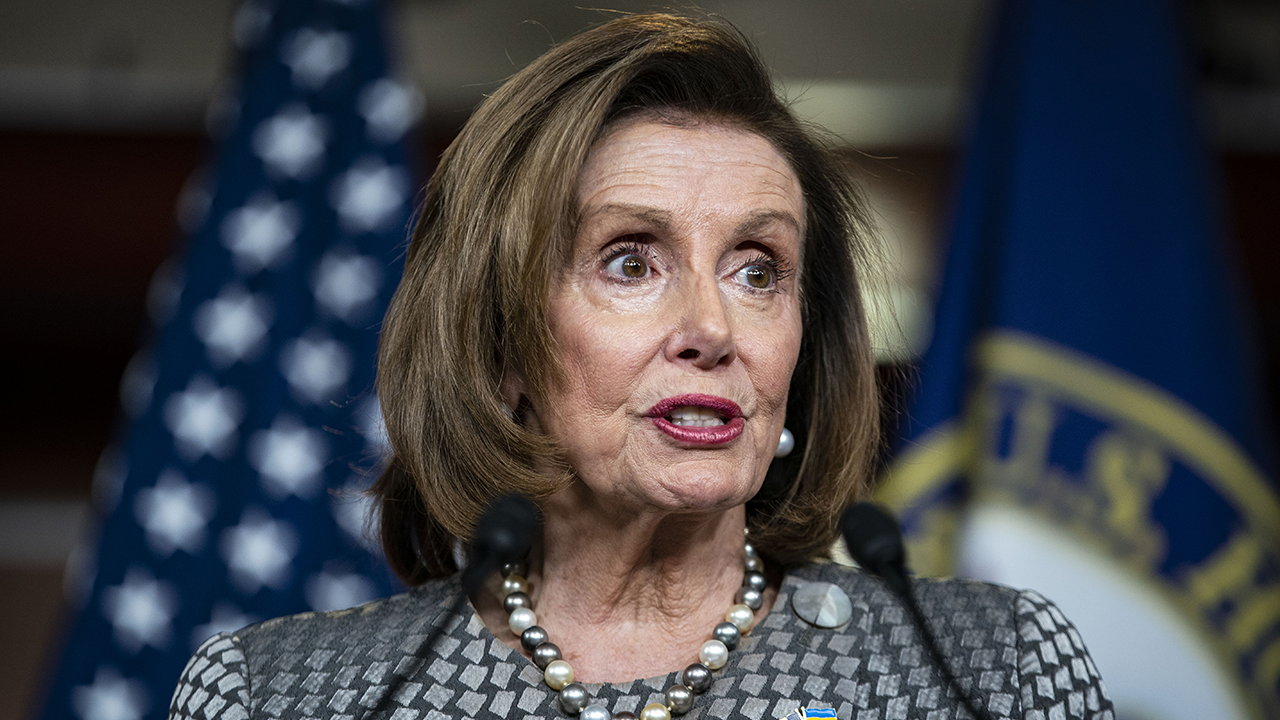
 Politics1 week ago
Politics1 week agoGOP releases Jan. 6 clip of Pelosi saying 'I take responsibility' as she discussed National Guard absence
-

 World1 week ago
World1 week agoOrban party loses major support in Hungary's EU election
-

 World1 week ago
World1 week agoUkraine reconstruction official quits citing ‘systemic obstacles’
-

 World1 week ago
World1 week agoJury deliberations start in Hunter Biden’s gun trial
-
World1 week ago
German chancellor Olaf Scholz heckled by pro-Palestinian protesters at SPD rally
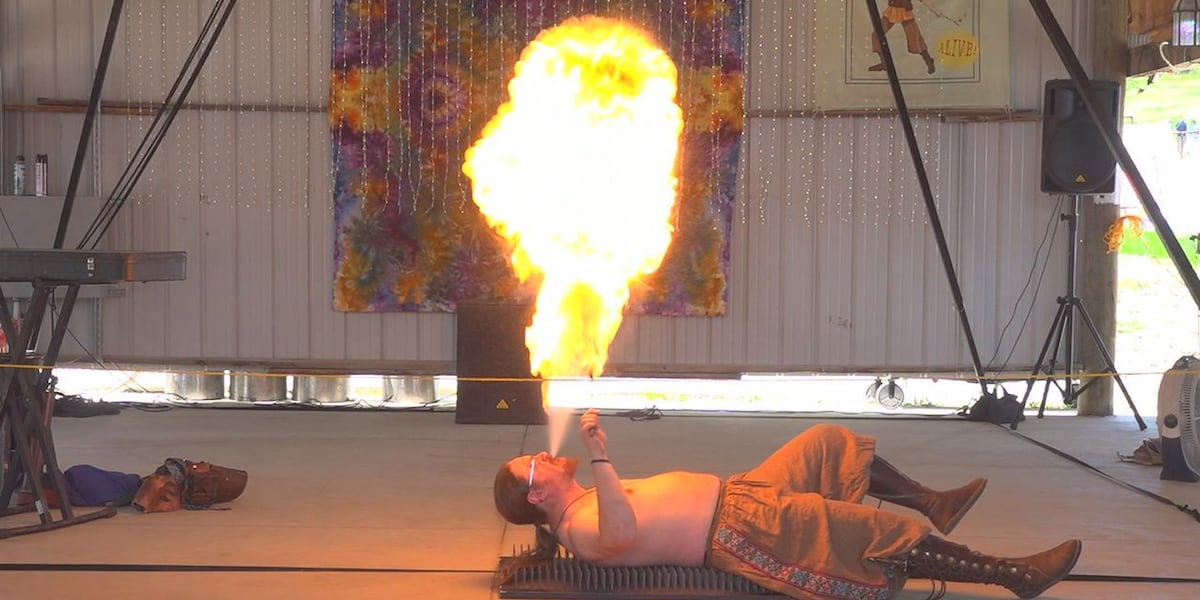
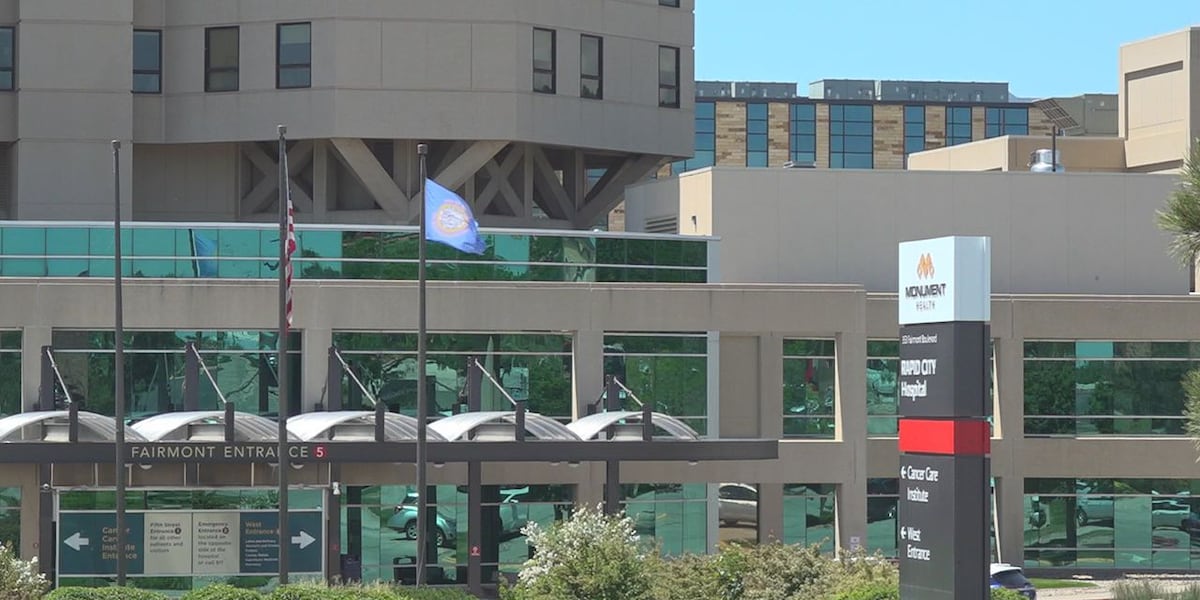
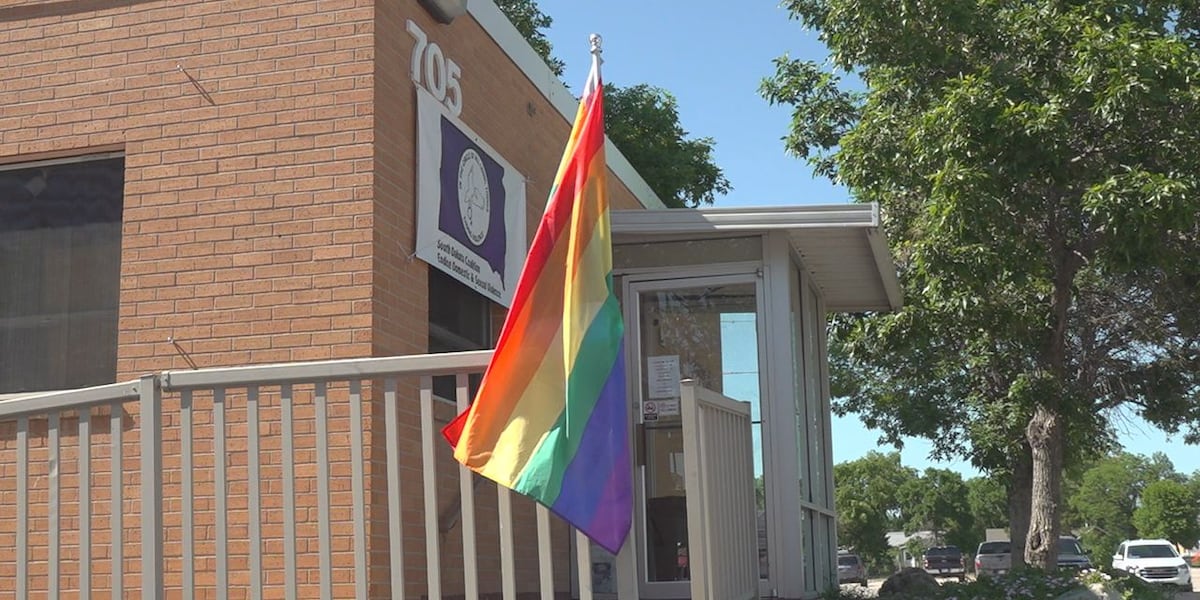





/cdn.vox-cdn.com/uploads/chorus_asset/file/23267909/jtuohy_220222_5043_0003.jpg)
